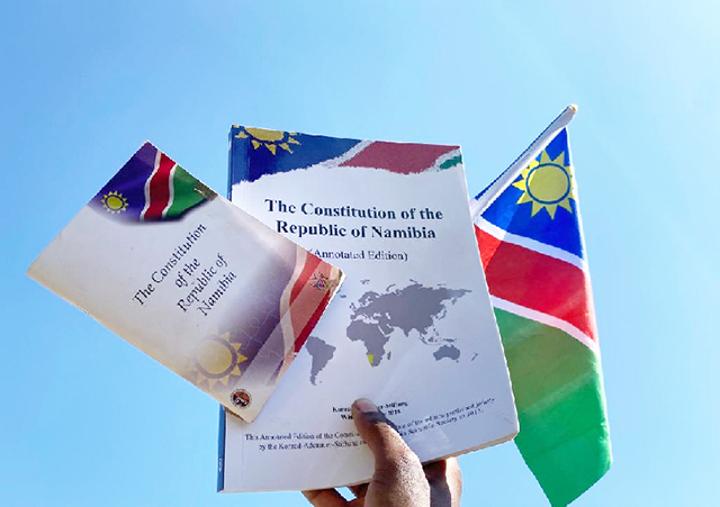Africa-Press – Namibia. SELMA NDASILOHENDA IYAMBO
A CONSTITUTION refers to a body of fundamental principles or established precedents according to which a state should be governed.
The Constitution of the Republic of Namibia was brought into existence in 1990. Since then it has been our foundation of civic rights and duties, legislation, government policies, and the embodiment of our supreme law, according to which a state exercises its power.
According to the Constitution of the Republic of Namibia’s annotated edition, published jointly by Konrad-Adenauer-Stiftung and the Namibia Scientific Society in 2015, the Constitution was ratified on 9 February 1990 and became effective on 21 March 1990 when Namibia gained independence.
To date, the Namibian Constitution has been amended three times, in 1998, 2010, and 2014.
Legal Practitioner in the High Court and Supreme Court Kadhila Amoomo defines basic rights as those enshrined in chapter three of the bill of rights of the Namibian Constitution.
Among the rights stipulated is the right to life, the right to dignity, children’s rights, political rights as well as freedom of speech.
“In terms of ranking, the right to life is clearly the most important. Not only because all humans have the right to life, but mostly because the right to life enables one to enjoy all other rights,” Amoomo said.
He believes the right to dignity is also one of the most crucial rights, followed by children’s rights, as they are our future.
Rivaldo Kavanga, a human rights activist and member of the Children’s Parliament, says it is vital for Namibian citizens to know their basic human rights because these are inherent rights that everyone has regardless of their age, sex or economic position.
“If you don’t know your basic human rights, you don’t know what you are entitled to as a Namibian citizen, and it only benefits you to be informed,” Kavanga said.
According to Kavanga, only a few young Namibians are aware of their basic human rights.
Access to education is a contributing factor, despite human rights being taught in schools.
While some lack access to education, for others it’s simply a matter of ignorance and not being aware of the power that knowing their rights holds.
“I remember being taught about this in school but I didn’t think it was important. I took it as some of those theories that we needed to cram in our heads to proceed to the next grade,” said 27-year-old Hafeni Timotheus.
Timotheus failed Grade 10 in 2018 and is currently based in the central-north of the country, where it’s very hard to access the Constitution, particularly in the rural areas.
“Few young Namibians are aware of the rights stipulated within the Constitution, however, they do not have a full understanding of what they are and how they can fully exercise them in a meaningful manner as enshrined in the Constitution,” said the director of planning at Social Enabled Education Namibia, Kaurua Upora.
This can be traced back to the 2019 presidential and National Assembly elections, when some young people chose to stay away from the elections with the notion that their one vote will not make a difference, Upora said.
This meant that they did not exercise their right to vote and political participation, despite being aware of it.
Being aware of your human rights allows you to be informed when your rights are violated, and the action you need to take towards that violation.
But, how many Namibians are aware of what actions they can take should their rights be violated?
The Namibian Constitution stipulates that any aggrieved person should approach a competent court for relief, but how many of us can afford it?
Amoomo highlights that approaching a competent court remains a challenge in Namibia, as the majority cannot afford legal representation.
“Yes, Legal Aid is quite helpful but it is not very resourced in our country,” Amoomo said.
Another route that can be taken is through the Office of the Ombudsman, which was established to help Namibian citizens table their grievances. However, many are not aware of it. He indicated that there is a need to strengthen the institution if we are to stand a chance of eradicating human rights violations.
Copies of the Namibian Constitution are readily available at the Ministry of Justice, with magistrate’s courts, the Legal Assistance Centre, the Office of the Ombudsman, as well as online at www.kas.de
Various offices, such as the Office of the Ombudsman and Konrad-Adenauer-Stiftung, provide copies of the Constitution at career fairs and expos.
All in all, Namibian citizens need to know and understand their basic human rights, as it is only through knowing them and truly exercising them that they can hold the government accountable to their promises, as well as meaningfully participate within the political sphere, Upora said.
For More News And Analysis About Namibia Follow Africa-Press






